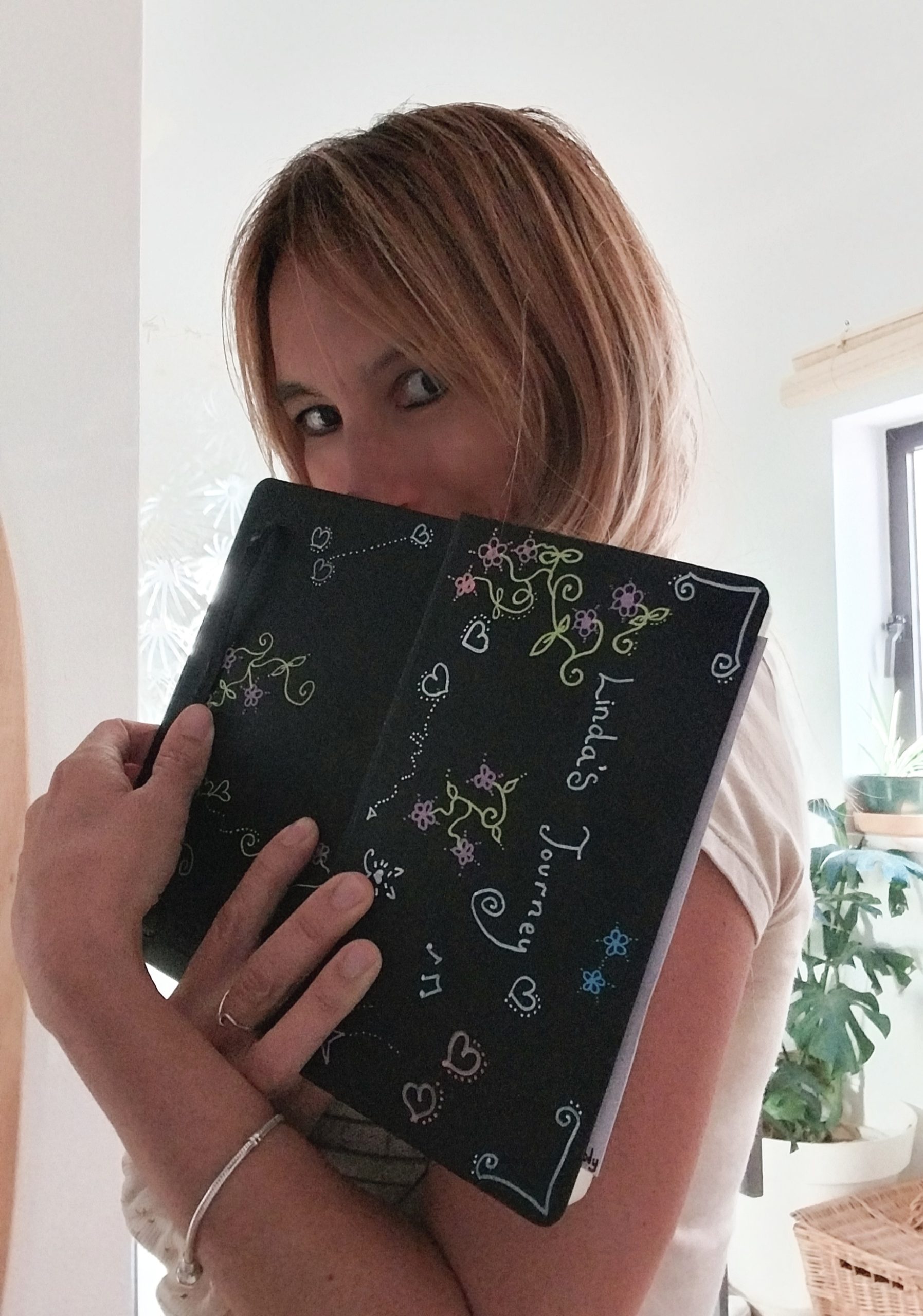|
|
18 - The magic, spiritual number. ONE - The ONENESS that is ALL. All there ever was; All there ever is; All there will ever BE! (8) INFINITY - The ETERNAL PRESENT Moment. Eternity; Forever! That which was never born; never dies!
|
I believe God wants you to know ... ... that you need
to read more. No, really. You need to read more. There's a book right now
waiting to be read by you. Do you think this
book has come into your awareness by accident? It has been placed
before you by your Consciousness. Go get it. Read it.
Make margin notes. Do it now. Sometimes Life
jumps out at you with its message, fairly screaming at
you: get this. This is one of those times. I'm telling you,
there's a book you've been scheduled to read right now. Don't ignore the
schedule. It's Divine
Intervention. |
|
Working with a shaman can be a great puzzle
piece, in the process of becoming whole again. Since time immemorial, certain men and
women have felt called to heal the sick, to safeguard knowledge, to guide the
lost, and to commune with the spirit world. These unique individuals, known
as shamans, were mystics and seers, repositories of wisdom, and keepers of
herbal lore. During those periods when ignorance loomed large in the world,
shamans across the globe bided their time, peacefully practicing their
practical yet refined arts in the jungle, mountains, deserts, and tundra that
protected them from those who misunderstood shamanism. Today, however,
shamanism has reemerged, as modern men and women feel the same call to
service that their ancestors felt long ago. Also, as more individuals explore
the notion that healing necessarily involves the soul as well as the physical
self, people are consulting shamans in their search for wellness, wisdom, and
guidance. The word shaman literally means “he or she
who knows.” Shamanism is an art that has not changed in any quantifiable way
for millennia and is not bound to any particular form of spirituality. It is
grounded on the principle that the visible world is saturated with unseen
forces that influence the lives of human beings. Shamans, in addition to
acting as fonts of wisdom, are dedicated to diagnosing and curing human
suffering—whether emotional, physical, or spiritual. To treat an illness, a
shaman may communicate with the spirit world in order to connect more
directly with the soul of their patient or with the force causing ill health.
They often work closely with animal guides, plant and earth spirits, or your
spirit guides, and may make use of use of herbal remedies to supplement other
forms of treatment. Shamans, as intermediaries between the physical and
spiritual realms, recognize that all objects are in manner alive and retain
information that can be utilized to heal. Shamanism is powerful in part because its
practitioners tailor healing to the individual needs of those who seek them
out. A shaman manipulates energy, giving you power where you have lost it and
removing misplaced energy lurking within you. When you seek out a shaman,
they will endeavor to know and understand you before treating you. In this
way, they can provide you with therapies that act on your whole being,
positively influencing your body as well as your soul. |
View this post on Instagram
{*Did you know you can write on Elephant? Here’s how—big changes: How to Write & Make Money or at least Be of Benefit on Elephant. ~ Waylon}
~
“Why need we weep over parts of our life? The whole of it calls for tears…” ~ Seneca
~
Of course, the degree of difficulty ebbs and flows throughout one’s lifetime, and privilege is real.
Not everything is as it seems—even salt looks like sugar.
Every now and again, I remind myself that regardless of what I’m going through, others are more fortunate than me and I am more fortunate than others. And when I get sucked into the vortex that the online world excels at—thinking anyone is living their “ideal life”—I remind myself perfection doesn’t exist.
The reality is life is no walk in the park. And not seeing someone’s darkest moments doesn’t mean they don’t exist.
Truly living requires us to experience the full range of human emotions. People rarely speak or write openly about the struggles most of us face at some point in life. So many of us walk around completely disconnected from ourselves without any awareness of what’s happening in our bodies from the neck down.
If we’ve done a decent amount of personal or self-development, we’ve likely realised that life rises and falls, just like the waves in the ocean. And when we’re embodied and connected with our mind, body, and spirit, we realise that our soul is simply tired during certain phases and stages.
What is the soul?
Before we explore what living with a tired soul feels like, let’s attempt to define the soul, which has fascinated me for several years. Most people generally accept we all have a soul, but defining the soul is complex, as doing so inevitably draws on various philosophical, religious, and spiritual perspectives.
I’ve always considered the soul the essence or core of our being; it’s the light or spark that lives on once the physical body dies. The soul transcends the boundaries of the physical world we live in.
Like most things in life, I suspect the experience of housing a tired soul may differ from person to person. I am not referring to physical fatigue here; I’m pointing to a weariness that permeates the very fabric of our being, leaving us feeling drained, hollow, and disconnected.
When our soul is tired, the world is drained of its colours. We may question everything, and even the simplest tasks feel like burdens too heavy to bear.
When our soul is tired, life can seem incredibly ho-hum.
And yes, I am writing from experience.
How to nourish and heal a tired soul.
A tired soul demands that we trust in the variability of life and that this, too, shall pass—at precisely the right time and not a moment before. We cannot rush this process.
This is a time to slow down, listen, and honour the whispers of our weary soul. While I find it’s best to cease all expectations when our soul is aching, we may find that beneath the weariness lies a wellspring of resilience that carries us through even the darkest of times.
Life can be a daily grind when our souls are tired. During these times, it’s helpful to savour the seemingly tiny moments that, upon reflection, are beautiful, even though we often take them for granted.
>> Making a conscious effort to take in my surroundings.
Walking and going to the gym are among my daily non-negotiables. I need both to function well. During difficult times, I make a point to look around and sink into the things that make me smile: watching cute dogs chasing a ball in the park, noticing how a tree’s colour has changed with the seasons, and feeling my feet hitting the grass or pavement. I often remind myself that movement is not a chore—it’s a privilege.
>> Doubling down on routines.
I function incredibly well on routine. Daily routines (within reason, of course) remove my decision fatigue. I don’t have to choose to walk, go to the gym, and write daily; each of these tasks have become like brushing my teeth. They are staples. All thought goes into doing each actively rather than choosing whether to do them.
Find two or three things you enjoy and make them part of your daily routine without question. Some ideas include journaling/writing, listening to music, reading before bed, drawing, and savouring your favourite foods.
>> Taking the pressure off.
We are often our own harshest critics. I was on a Zoom call recently with a friend, and we spoke extensively about purpose and legacy. At one point, they explained the ways they feel they “should” be giving back to those around them and chipping away at what they believe is their mission. I paused and blurted out these words, almost like a reflex: “The mission is to be happy.”
For all the thoughts that deep thinkers and ambitious people like myself put into life, I wonder whether our role here is far simpler than we lead ourselves to believe: to be happy. End of story.
~

Sarah Cannata is creator of Storytelling for the Soul. She’s not a doctor, therapist, or any other health provider. She’s someone with lived experience who has use… Read full bio

{*Did you know you can write on Elephant? Here’s how—big changes: How to Write & Make Money or at least Be of Benefit on Elephant. ~ Waylon}
“We have a great, habitual fear inside ourselves. We’re afraid of many things—of our own death, of losing our loved ones, of change, of being alone. The practice of mindfulness helps us to touch non-fear. It’s only here and now that we can experience total relief, total happiness…In the practice of Buddhism, we see that all mental formations—including compassion, love, fear, sorrow, and despair—are organic in nature. We don’t need to be afraid of any of them, because transformation is always possible. Such transformation is possible only through deliberate practice—none more challenging, or more rewarding, than the practice of transforming fear into love. In consonance with his teaching that ‘to love without knowing how to love wounds the person we love,’ he anchors this transmutation practice in four mantras ‘effective for watering the seeds of happiness in yourself and your beloved and for transforming fear, suffering, and loneliness.'” ~ Thich Nhat Hanh
He particularly talked about a simple practice of repeating mantras.
He wrote:
“A mantra is a kind of magic formula that, once uttered, can entirely change a situation. It can change us, and it can change others. But this magic formula must be spoken in concentration, with body and mind focused as one. What you say in this state of being becomes a mantra.”
1. “Dear one, I am here for you.”
This mantra might be short and simple but in our times, when we have to be everywhere all at once and get as many things done as we can in a day, carving out space and gifting someone with real presence might be not so simple for everyone. Yet, Thich Nhat Hanh gently reminds us that the most precious gift we can give to the one we love is our pure presence. You must say the mantra with your body and your mind at the same time, and then you will see the transformation.
And this pure presence is the prerequisite for the second mantra “Mantra for Recognizing Your Beloved.”
2. “Darling, I know you are there, and I am so happy.”
When we are fully present with someone, we can then recognize how much their presence is precious to us. The best in these two mantras is that in our modern times of internet, these practices can be performed across distance and time zones.
While the third mantra “Mantra for Relieving Suffering” might sound similar to the first mantra, the difference is that it is focused on bringing ease to anyone who’s suffering, even through wires and screens.
3. “Dear one, I know you are suffering. That is why I am here for you.”
When we suffer, we need the presence of a person we love, even if we aren’t aware of it. If we get ignored by our loved ones during hard times, we suffer even more. This even works with people we don’t know that much, but we know of and understand their suffering. If we repeat the mantra to them with all our presence and love, we’ll be able to offer support and relief to anyone. Combining it with the hugging meditation of Thich Nhat Hanh, we can magnify the benefits of this mantra.
The final mantra “Mantra for Reaching Out to Ask for Help” is, as Thich Nhat Hanh observes, the most difficult of the four.
4. “Dear one, I am suffering; please help.”
We can use this mantra when we suffer or believe that a loved one has caused it. When someone we love deeply hurts us, the last thing we feel like doing is to ask that person for help. According to the teaching of the Buddha, in true love, there is no place for pride, so we have to overcome our pride and not let it become an obstacle to reconciliation and healing. This mantra will also help us to realize that nothing can be done to us without our (often unconsciously given) permission.
We can practice this fourth mantra on ourselves, too, to bring about the unity of our body and mind before going to another person to say the mantra. This seems simple, isn’t it? Yet this is the hardest thing to do.
~
This account does not have permission to comment on Elephant Journal.
Contact support with questions.

Imola is best known as “the writer who plants trees”. She’s a lover of words and nature and works in forestry, planting trees around our beautiful planet. Cu… Read full bio

{*Did you know you can write on Elephant? Here’s how—big changes: How to Write & Make Money or at least Be of Benefit on Elephant. ~ Waylon}
~
They claim that the younger generations especially don’t talk face-to-face, and that they text “too much,” and that that kind of communication is not real.
Oh the irony of posting that on social media.
In my opinion, nothing could be further from the truth.
People talk and hang out all the time. Kids ride bikes and scooters around, and groups of them play football in quiet streets or hang out at the skate park. From the age of 18 and upwards, many people go traveling and meet new people from around the world.
(Who they can then stay connected to online.)
I think WhatsApp, and all its cousins, are amazing. I communicate with family and friends throughout my day, no matter how far away they may be. From photos of the view, to snaps of a silly cat, from funny reels, to informative Ted Talks, we share it all.
But this, is not about that.
When I was a child, I was so terribly shy that for a while I didn’t let anyone outside of my family hear the sound of my voice. When I was forced to speak at school, it would be with as few words as possible, and so quietly that I would hear those two little words, again and again.
Speak up!
Speak up!
The other day, something happened that made me feel incredibly sad and worried, and I could not talk to anyone.
Sometimes I actually find that speaking out loud about something upsetting causes me to feel more anxious.
Yet I found myself reaching out, in a poem, talking to my own sadness.
I was able to write about it.
And I was able to text about it.
I find it easier to put my thoughts and feelings into writing than I do to vocalize them.
Of course, it depends on who I’m talking to, when, where, and what we are talking about.
Some conversations have to be held in person.
But not every piece of communication has to be done in person.
Even more difficult than the one-to-one conversations are the group conversations!
Often in groups, people don’t hear me, or I don’t get the chance to say what I want to say. However, in a group chat text, I can just write it and it will be read. Of course, this can also be easily ignored, but I like knowing I can put my words out there too.
I simply respond well to written communication.
And I can imagine that for awkward and shy teens, as well as anyone who struggles to open up face-to-face, the advent of texting has been an amazing opportunity to open doors with the written word.
Text.
In one of my groups, people frequently post about things they are worried about, or their fragile mental health. It is often mentioned, that they cannot open up to people “in real life.”
There are no opportunities, no time, or they struggle to formulate it in words, on the spot.
Writing sometimes feels anonymous, like you can separate yourself from the text. That is why journaling is so effective as a therapy in itself.
Writing makes it easier for some people to express how they feel.
The other day, I read a comment on Reddit by a teenage girl explaining that she had suffered from depression, and those who got her through it were her mother and her online friends. She said she struggled to make friends at school, and felt incredibly lonely, but she met friends online who stuck by her and guided her through the darkness.
I read that and felt so glad for her.
In our haste to discredit and blame the online world for mental issues and loneliness, let us not ignore the fact that there are a lot of people out there who have been connected by it, helped by it, and even saved by it.
Let us see the advent of online communication not as a replacement for face-to-face communication, but as another option, for those like me.
Those with the quiet voices.
Those who are a little bit scared.
Those who struggle to be heard.
“You may think I’m small, but I have a universe inside my mind.” Yoko Ono
I am being heard these days.
Still not so much when I speak.
But a whole lot more when I write.
~
This account does not have permission to comment on Elephant Journal.
Contact support with questions.

Linda Maria writes her heart out from the beautiful south coast of Portugal. She enjoys walking, reading, practicing yoga while cats climb all over her, watching ted talks, an… Read full bio
AUTHOR: LINDA MARIA JONES
IMAGE: AUTHOR'S OWN
EDITOR: LISA ERICKSON
This account does not have permission to comment on Elephant Journal.
Contact support with questions.